There was you and there was me in a classroom full of others our age. Yet, you stood out and I moved within shadows. I was always watching you but you never felt the heat of my gaze. No, you couldn’t have, surrounded as you were, by your sidekicks. The five of you were like the neatly manicured hands of actors: pompous, yet closed like a fist. I hated them. I still do. But I knew you were different, even though it was you herding them on invisible reins.
I’ve seen you come to school earlier than most. You walked to school, bag thrown over left shoulder, head buried in some book. You dodged pits on the crumbling tar road without lifting your head, and you ignored the security guard.
But he watched you every day, just like I did.
Walking up to your desk, you would read till the room filled in, sipping from your bottle of water. Soon your friends would come in one by one to seek your acknowledgement. But until then, you were mine to scrutinise while I sat unnoticed two rows behind you. I was among the class’ wallflowers; we saw everything and said nothing. And for you, we might as well be unborn.
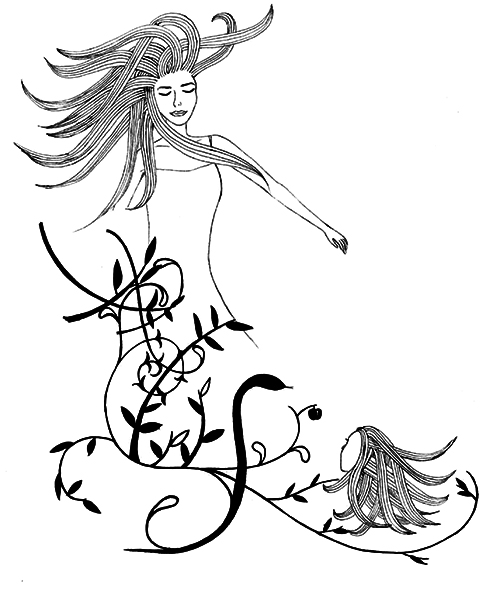
Why, then, were you different? I thought you were terribly lonely, and it was like a part of you knew that your friends were merely echoes. They weren’t really real, I could see. You were always at the centre when a picture was taken; always the one to draw the curtains on a fight, and you always walked a little ahead, while they jostled just a wee bit behind. And when they made cruel comments about the rest of us you just laughed—your mirth inscrutable as you.
Come to think of it, you hardly ever spoke. Yours was the silence of empty words, which your friends hardly understood. While I noticed the slight slouch of boredom on your retreating back, your friends interpreted higher meanings and trooped behind you. While you were probably only dodging potholes on their crumbling love lives they assumed your interest and you couldn’t be bothered if they were mistaken. In letting them assume, you tightened your grip on the reins.
For days I had been trying to muster up the courage to be able to speak to you. I decided my best shot would be early in the morning, because that is when you seemed most real. After struggling to come up with something, I chose to ask if I could be part of the dramatics club being formed in class. You were not the president but everyone interested was registering with you anyway. I chanted, “just enquiring, not desperate” and even practiced the way my voice should inflect but by the time I was catching up with you that morning, I was down to just chanting “not desperate”.
“Hi..,” I ventured and we instantly collided. I didn’t expect you to stop abruptly and now you were just staring at me, your face unreadable. “I want to be a part of your club… I mean the dramatics club,” I spat out finally. When you just said no and started walking away, I felt like I’d been slapped and a strange rage took over. I swore loudly and hurled myself at your back, willfully this time. I knocked you to the ground and slapped you thrice across the face, before I realised you weren’t fighting back. Mortified, I got off you and brushed the dirt from my uniform. I saw that I’d torn yours.
You stood up, your nonchalance intact and simply said, “The club registrations closed day before yesterday” and walked away. You neither adjusted your hair nor bothered with your torn uniform. I might as well have not spoken to you. Your friends went berserk and I feared a public showdown at break. They were begging you to name me; I was pressing myself harder into my wall, but you wouldn’t say a word.
You must understand my overwhelming intrigue and curiosity about your life beyond school. You were not normal, I could say, and our little encounter had kicked up all my latent interest in you. I decided to follow you home after school that day. We walked for really long through so many turns that I was worried I was lost. Suddenly you turned around like you’d sensed me behind you. Walking up to me, you said, “Don’t.” Just one word and, you left me there in that desolate road in a teary frustration.
Still, I vowed to find out where you lived. “Dramatics club activities have been scheduled every evening after school,” I called out as I left home the next day. My parents didn’t ask too many questions, but I knew I’d be observed. We were a family of wallflowers.
Each hour in class was a blur that day. I wore a watch for the first time to school and was torn between looking at it and you. After school, as you and your friends trailed all over school, hanging around various spots, my nerves rattled with anxiety. You were consciously delaying going home, though I’m not sure if you’d caught me hanging around in the background. Finally, the others set off on their bicycles and we took off on foot.
I knew I had to pay attention as I guessed that you were trying to lose me. But you hadn’t turned around—not yet. Very soon you did, and I ran without looking back as I would run the next three evenings. However, the rest of the time, I was becoming obsessed with you and was being pulled up by most teachers for being distracted.
On Friday, it was the fifth evening in a row that I had been following you. You were leading me through a new, much shorter route, making turns without looking up. I knew you were going straight home that day. But suddenly you dropped down to the platform and looked weary when you turned to face me. My cheeks began burning, but the heat dissipated the moment you looked back down. We stayed there a few minutes, separated by a gaping void with no memories to fill.
You lowered your head between your legs and I was aware of people on the road beginning to notice us. After all, we were in the same uniform. As I inched closer, I wondered what they might take us for—friends caught in a momentary spate, or siblings, maybe? But I knew we looked nothing like each other.
I saw your body quivering lightly. Were you crying? Or worse, laughing? I wouldn’t know because I was briskly walking away on cold feet. When I turned around to see if you were still on the platform, I saw you just turning left. I ran back the way I had come, a little clumsily under the weight of my school bag.
I came to an abrupt halt when I took in the road I turned into: avenue trees with overarching branches, high compound walls, imposing iron gates, and huge bungalows behind them. A group of men stood chatting over cups of chai and cigarettes and you were walking a little ahead, probably convinced I had fled again. The men followed you with their beady eyes and of course you either didn’t know or care. But I did, and my unease dragged my feet. The chatter came to a stuttering halt when I passed them.
You entered a villa three plots away through a gate painted black and gold. The paint was peeling to reveal some rust underneath. Keenly aware of the men behind me, I hesitated a few moments before striding in, as confidently as I could, behind you. Bracing myself to encounter a cross guard, or a thoroughly disgusted you, or worse, one of your parents, I was relieved to find no one. I had taken a few more steps before you grabbed me by my bag. Thoroughly startled, I yelped, and you slapped your hand onto my mouth. We were hurrying into a little shack on the side.
Standing there, among gardening tools and a variety of household refuse, you asked, “You’re sure you want to know?” I nodded yes, though I wasn’t too sure anymore. You whipped me around, took my bag off and a few moments later, your palms were on my breasts. No, actually, your fingers were on my nipples, now erect from the sudden contact; fingers that rolled my hard nipples under them and occasionally pinched them.
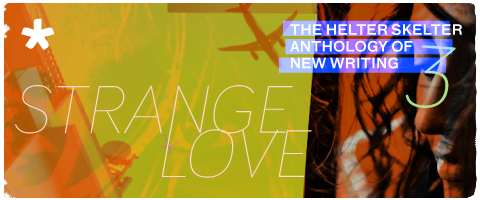
I pushed away your fingers as gently as I could and turned around. You were saying something. “You like that?” I simply stared. You began unbuttoning your shirt and stopped when your bra became visible. You gathered each boob in your palm and pushed them out. I wondered if it was normal for a teenager to have such wide areolas.
“My mother never squeezes them like this,” you said, squishing the soft flesh in your palms. “It might become too obvious, she thinks.”
“What about your father? What does he feel about it?” I asked, surprising both of us.
You just laughed. “We don’t care what he thinks.” You stopped when you saw the disgust on my face.
“Oh, so we’re judging now, is it?”
“Your mother is abusing you, don’t you see that?”
“I used to think so too.”
“I can help you. Please let me,” I tried again.
“I don’t need your help, can’t you see that?” you spat out. “Maybe you need to see it to believe it!”
You led me towards a spiral staircase that opened onto your terrace. Running across rubber tiles that were sweating out the day’s heat, you brought me to a square skylight in the middle.
“Look,” you huffed, and ran away. The skylight looked directly down at a living room, where I could see a wooden settee with blue upholstery. It was getting dark and I thought of my parents. Suddenly, I wanted to run away from this crazy perch atop the skylight.
What I saw from above will never leave my mind: you reclining on that beautiful settee with your bare legs spread apart and your mother lowering herself between them. Following the curve of the settee, your neck leaned over, leaving your face in full view. And on it I saw the most exquisite of expressions: pleasure, released from your depths onto your face in instalments, before you doubled over convulsing and breathing hard. Pushed back by your mother, your face was back where it stared straight up at me with glazed eyes.
Still crouched between your legs, I could see your mother was egging you towards another fall. I recalled the number of times I’d seen her at school and marvelled at how regular she had seemed. What shocked me the most, however, was the dawning realisation that my hands were under my skirt; my fingers were sliding wet within me. I couldn’t stop then, as I felt my other hand roll and pinch my nipples like you had; as I flicked my finger over that tabooed spot; as I licked my own cum, moments later. I cannot recall if there was anyone on neighbouring terraces, watching me as I lay prone over the tiles, my sweat marking the spot where I lay.
I left without meeting you on my way out. The next day, you came over to me during the break and whispered, “You left a mark.” It felt hot behind my ears as you said that. Your words echoed through my head.
You never spoke to me after that and I never spoke to anyone.
Though we finished school and left each other’s lives, I know I never really left my spot beside the skylight on your terrace. I am, as always, still the wallflower, but now I’m one that’s arrived in your world.







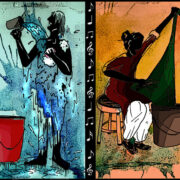
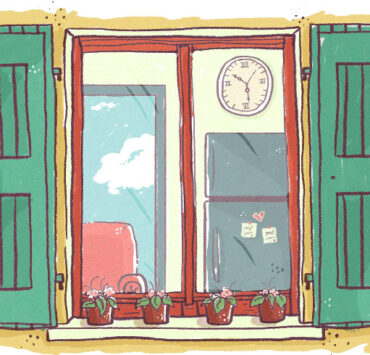
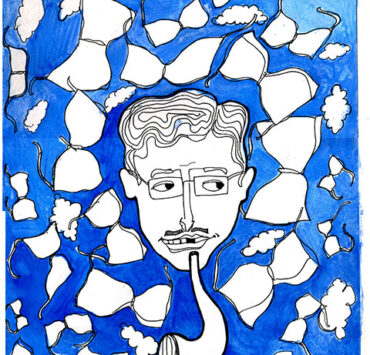

This was quite amazing.
Thank you Siddhartha :)
Totally immersive.
Totally absorbing.
“.. separated by a gaping void with no memories to fill.” Brilliant narration!